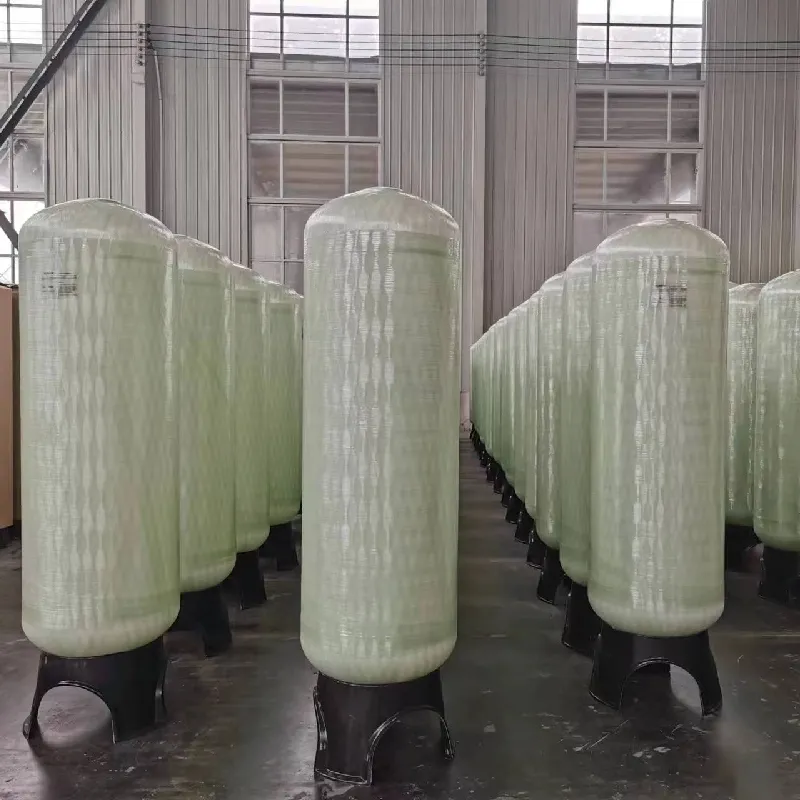loading...
- No. 9, Xingyuan South Street, Dongwaihuan Road, Zaoqiang County, Hengshui, Hebei, China
- admin@zjcomposites.com
- +86 15097380338
- Welcome to visit our website!
Design Considerations for RO FRP Vessels in Water Treatment Applications
Understanding the Properties and Applications of FRP Vessels
Fiber-Reinforced Polymer (FRP) vessels have gained significant traction in various industries due to their unique properties and advantages over traditional materials such as steel and concrete. FRP is a composite material consisting of a polymer matrix reinforced with fibers, such as glass, carbon, or aramid. This combination results in a material that is lightweight, corrosion-resistant, and versatile, making it an ideal choice for a wide range of applications.
Advantages of FRP Vessels
1. Corrosion Resistance One of the primary benefits of FRP vessels is their exceptional resistance to corrosion. Unlike metal vessels that can rust or degrade when exposed to harsh chemicals, FRP vessels can withstand aggressive environments, making them suitable for chemical storage and transportation. This property significantly reduces maintenance costs and prolongs the lifespan of the vessels.
2. Lightweight FRP vessels are considerably lighter than their metal counterparts, which makes them easier to handle and install. This lightweight characteristic not only results in reduced transportation costs but also allows for simpler structural designs. Additionally, the reduced weight can be particularly advantageous in aerospace and marine applications, where weight is a critical factor.
3. High Strength-to-Weight Ratio Despite being lightweight, FRP materials exhibit impressive strength properties. This high strength-to-weight ratio allows for the design of stronger and more durable structures without the bulkiness of traditional materials. This makes FRP vessels ideal for applications where space is limited or where structural integrity is paramount.
4. Thermal Insulation FRP offers excellent thermal insulation properties, making it suitable for applications requiring temperature control. This feature is essential in industries such as food processing and pharmaceuticals, where maintaining specific temperatures is crucial for product quality.
5. Customization FRP vessels can be easily tailored to meet specific requirements. The versatility in design allows for the creation of vessels in various shapes and sizes, accommodating the unique needs of different applications. This customization can be particularly useful in specialized industries, such as oil and gas, where distinctive vessel shapes may be necessary for specific processes.
ro frp vessel

Applications of FRP Vessels
FRP vessels can be found in a wide range of industries, each benefiting from the material's unique properties.
- Chemical Industry FRP vessels are extensively used to store corrosive chemicals and solutions. Their resistance to chemical reactions ensures that the contents remain safe and uncontaminated, making them ideal for applications in chemical processing and manufacturing.
- Water Treatment The use of FRP for tanks and vessels in water treatment plants has become increasingly common. Their ability to resist corrosion from water and various treatment chemicals enhances the efficiency and longevity of the water treatment process.
- Oil and Gas In the oil and gas sector, FRP vessels are utilized for containment and transportation of hydrocarbons. Their lightweight and corrosion-resistant properties are particularly beneficial in offshore applications, where weight reduction and durability are critical.
- Transportation In the aerospace and automotive industries, FRP vessels are employed in various components where weight savings can lead to enhanced fuel efficiency and overall performance. They also play a role in packaging solutions for transportation, particularly in sensitive goods that require protection from environmental factors.
Conclusion
In conclusion, FRP vessels represent a significant advancement in material science, offering a plethora of advantages that make them suitable for diverse applications across industries. Their lightweight nature, corrosion resistance, customization options, and strength make them an excellent alternative to traditional vessel materials. As industries continue to evolve, the use of FRP vessels is likely to grow, leading to improvements in efficiency, sustainability, and product longevity. The future of FRP technology holds exciting potential, paving the way for innovative applications and solutions.
-
GRP Structures: The Future of Lightweight, High-Performance EngineeringNewsJun.20,2025
-
FRP Water Tank: High-Performance Storage for Corrosive and Clean Water SystemsNewsJun.20,2025
-
FRP Square Tube: The New Industry Standard for Chemical and Structural ApplicationsNewsJun.20,2025
-
FRP Pultruded Profiles: The Ultimate Choice for Lightweight Structural StrengthNewsJun.20,2025
-
FRP Handrails: The Safer, Smarter, and Stronger Choice for Modern InfrastructureNewsJun.20,2025
-
FRP Grating: The Smart Solution for Durable, Lightweight Industrial FlooringNewsJun.20,2025
-
Why Choose a Galvanized Water Tank for Your Storage NeedsNewsMay.21,2025
